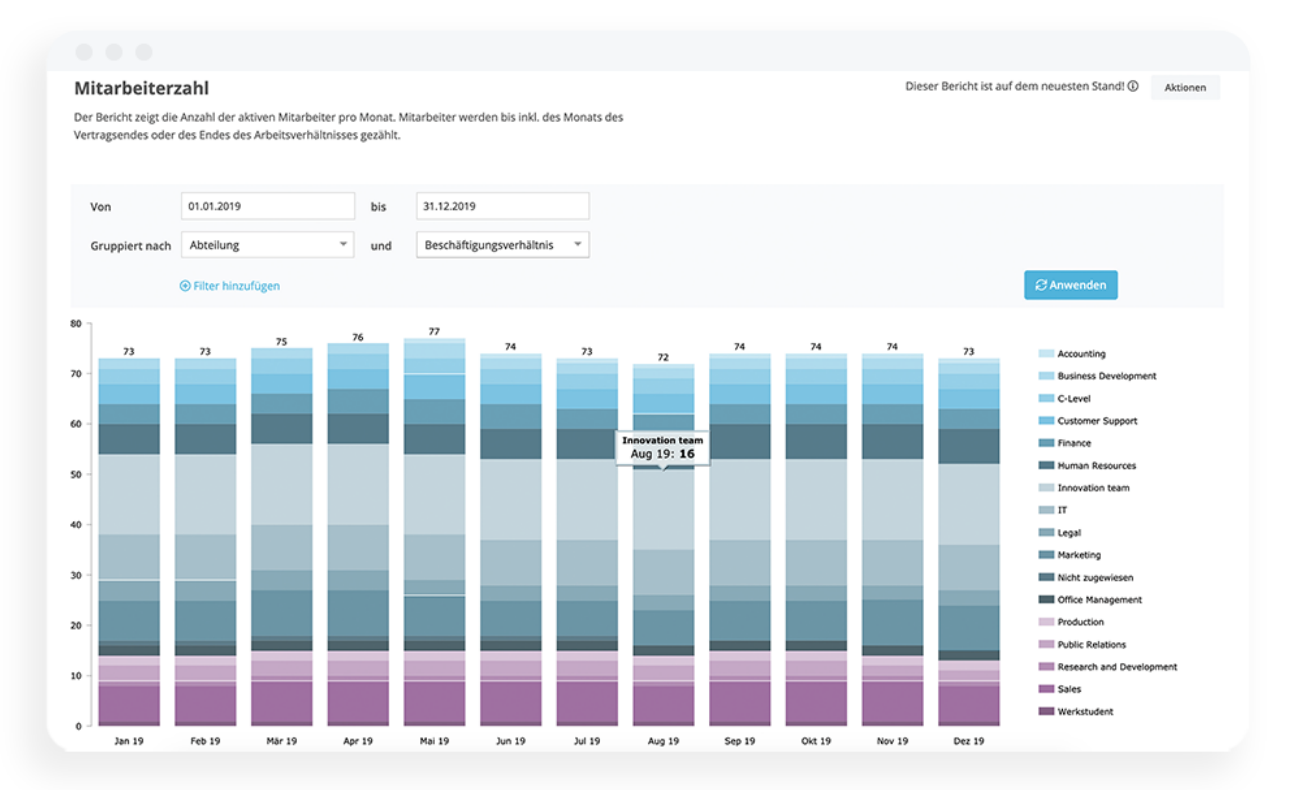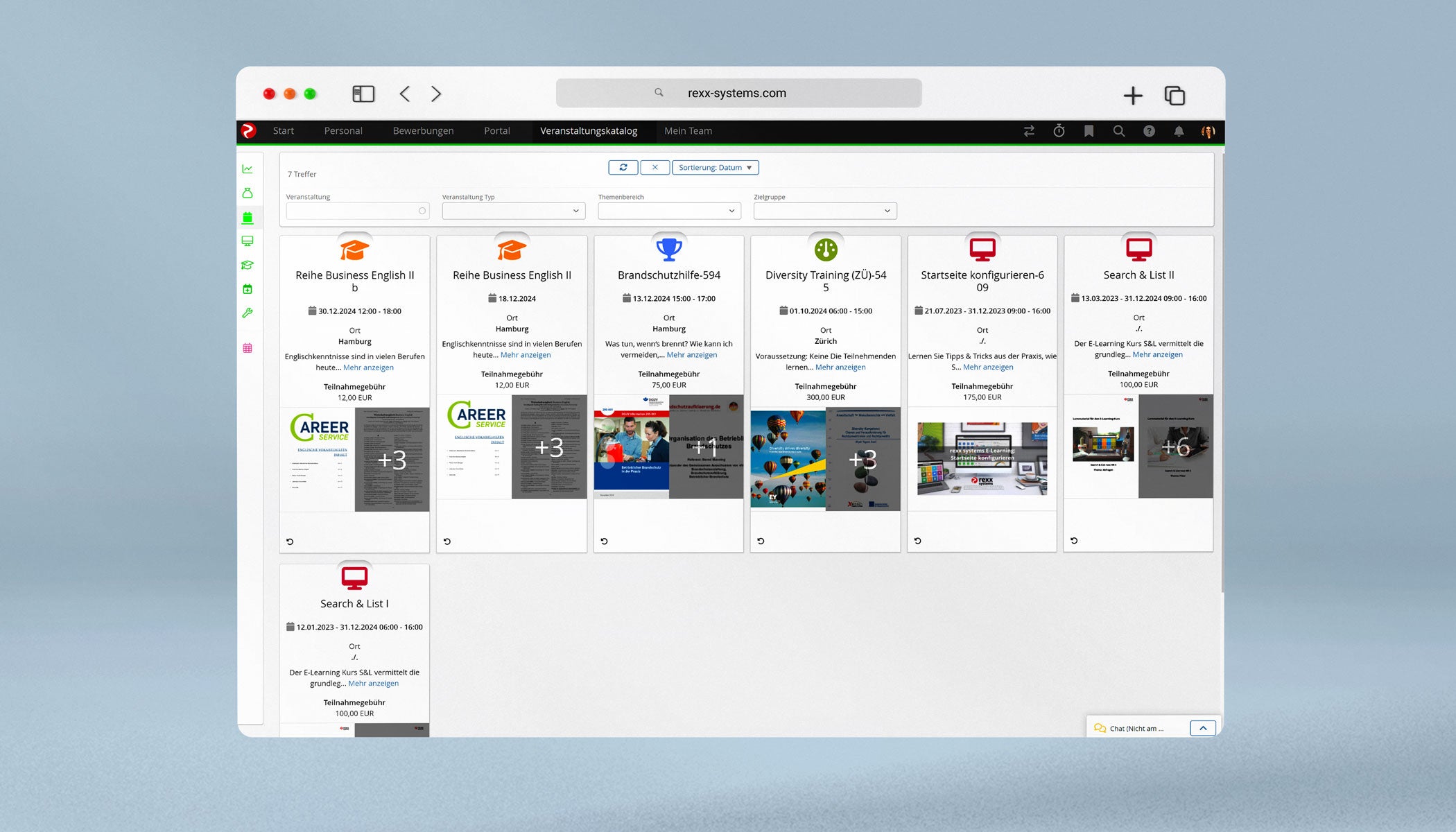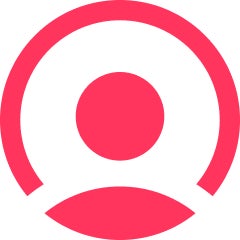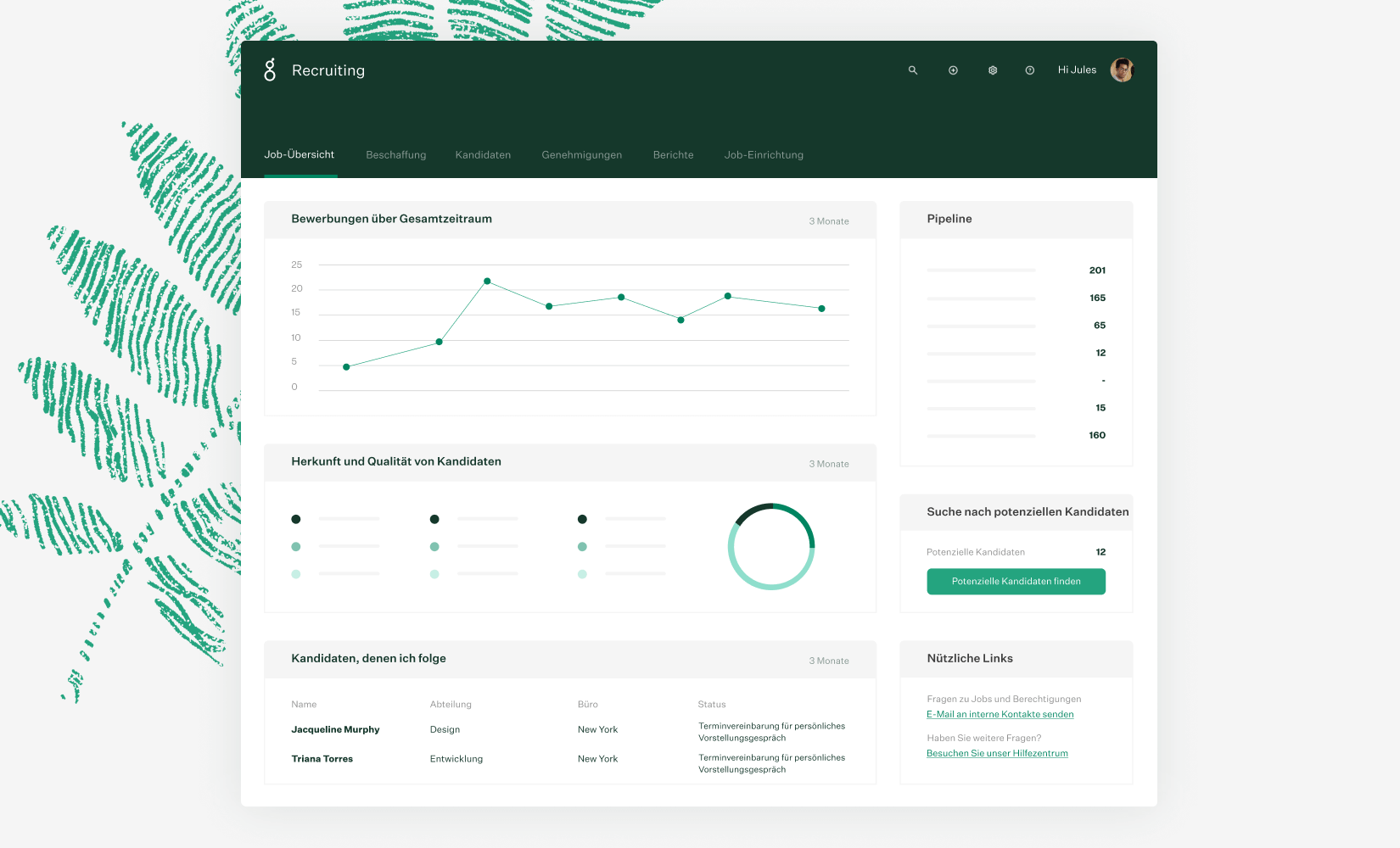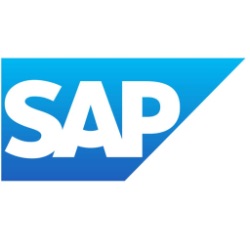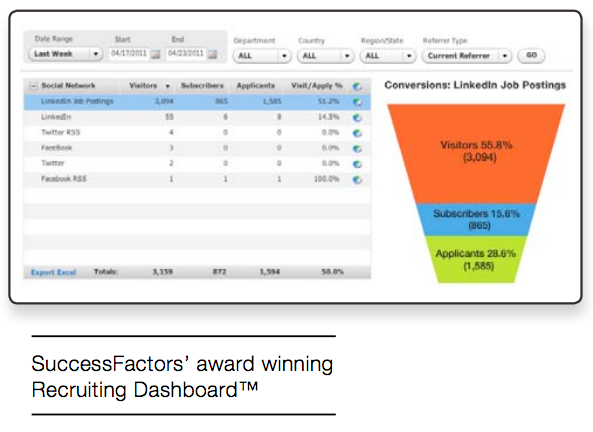How a Personnel Information System Makes Your HR Unit More Efficient
Nils Martens6/14/2024
We show you one of the core elements of digital HR affairs with the personnel information system.
Table of contents
- What is a Personal Information System (PIS)?
- What types of PIS are there?
- The functions of a PIS
- What is the difference between a PIS and HR software?
- A PIS is about drawing a holistic picture of all personnel information in order to evaluate and administratively use them. The goal of a
- Of course, there are also advantages and disadvantages with a PIS. However, since it represents a comprehensive system consisting of numerous software features, the advantages and disadvantages are hard to point out. They vary depending on what your PIS looks like and what scenario it is used in. We have therefore listed the advantages and disadvantages that are often found - check which ones apply to you.
- With such a huge pool of data as the PIS is, we can understand that corporate managers and data protection officers quickly get nervous. Besides a works council, however,
- Introducing a
- To round off the article, we introduce you to the 5 best
- , that are most suitable for you.
Software genres usually have fancy names like Supply-Chain-Management or Collaboration software. Personal information system sounds much more like a 20-year-old obsolete IT infrastructure in a public agency. But - and this is a big but - fortunately that's not the case. A personal information system belongs to the HR Management systems, abbreviated to PIS and sometimes simply titled as personnel system - is an important core of human resource management. Not to be confused with a tool of the same name in this regard. In short: PIS are databases that are filled with a lot of information and are capable of a lot.
Exactly for what, what types of Personnel Information Systemsthere are, how big the role of data protection looks like and which features fit into a PIS, we have written down for you. We provide the answers to some further questions, along with 5 recommendable personnel information system providers that you can find on OMR Reviews.
What is a Personal Information System (PIS)?
By definition, a personal information system is nothing more than the database of your HR infrastructure. Plug into it and you'll get all the information about your employees. This includes social security numbers, employment criminal records, addresses and everything else you need to know as an HR manager about your employees. As a result, you collect, store, process, care for, analyze and transfer personnel data with a PIS. In the best case, it also works intelligently, which further increases the efficiency of your HR work - for which a PIS is known anyway. What mistake you should definitely not fall for: Personal Information Systemsare not softwares. They declare the combination of software and hardware to enable the management and analysis of your employees.
What types of PIS are there?
Accordingly, there are different types of PIS. Which one is relevant for you depends on the size and needs of your company. Well, that probably applies to all IT helpers. But you can remember one rule about PIS: The larger the company, the more extensive the number of features - the smaller the company, the fewer. Also, a basic distinction is made between administrative and dispositive systems. The one manages, the other plans and steers. When implementing a PIS, it is important to take these differences into account and to select the system according to the specific needs of the company.
The functions of a PIS
The functions are divided into the categories payroll accounting, master data management, administration, personnel reporting, time determination and personnel planning. If you were to build the ultimate personal information system, you could rely on the following functions afterwards - even if a PIS rarely needs to include all features:
- Management of master data
- Organizational management
- Self-service for all employees and managers of the company
- Administration of absence and vacation
- Drafting duty rosters
- Performance analysis of employees
- Structuring and analyzing career progression
- Optimization of workflows in different departments
- Personnel requirements planning
- Recruiting
- Applicant Management
- (Automated) payroll accounting
- Personnel cost planning
- Organization of further training of the employees
- Reports and analyses of all data (for example, fluctuation research)
Nice to have are also graphical processing of the data and some small features, which are mostly found in large HR-Softwares, but are not of decisive importance. Have a look at the features of the tools on OMR Reviews, to check their relevance for you. After all, with a PIS as well comprehensive = expensive!
Empfehlenswerte HR Tools & Softwarelösungen
Weitere empfehlenswerte HR-Software-Anbieter kannst du auf unserer Vergleichsplattform OMR Reviews finden. Dort haben wir über 500 HR-Softwares für kleine und mittlere Unternehmen, Start-Ups und Großkonzerne gelistet, die dich in allen Bereiche des Human Resource Managements unterstützen. Also schau vorbei und vergleiche die Softwares mithilfe der authentischen und verifizierten Nutzerbewertungen:
- HR Suites
- Recruiting, Bewerbermanagement & Personaleinsatzplanung
- Zeiterfassung
- Mitarbeiterbenefits
- Hrmony (Demo erhalten)
- Refluenced (Demo buchen)
- Benefits.me (Jetzt kostenlos testen)
What is the difference between a PIS and HR software?
We can understand that sooner or later the question arises what the difference between a PIS and a Human Resource Software is. For this reason, we now dedicate ourselves to the answer. HR Software handles the management of personnel, including personnel management, personnel administration and HR operations. This does not necessarily include topics such as Talent Management, Recruiting or time recording. The construction of a personal information system, on the other hand, represents all data-related elements of digital personnel administration - after all, information is needed in many places in the HR department. Therefore, it can happen that several tools depict your PIS, which work together via interfaces. Although it is common for HR softwares to be modular, hardly any tool covers all tasks that come up in the personnel department.
What is the goal of a PIS?
A PIS is about drawing a holistic picture of all personnel information in order to evaluate and administratively use them. The goal of a
Personnel Information Systemfocuses on the centralization of all information, simplifying work processes, such as payroll accounting and personnel planning, and simple access for all participants - HR department, employees, managers. This saves valuable time on all sides, which can be invested in new personnel developments. Today, fluctuation and satisfying employees is more than ever an issue that requires a lot of effort from employers. Paper files and traditional work processes can no longer meet these and other requirements. A PIS helps to make processes more efficient.The advantages and disadvantages of a PIS
Of course, there are also advantages and disadvantages with a PIS. However, since it represents a comprehensive system consisting of numerous software features, the advantages and disadvantages are hard to point out. They vary depending on what your PIS looks like and what scenario it is used in. We have therefore listed the advantages and disadvantages that are often found - check which ones apply to you.
Advantages
Early detection of personnel changes - for example, if some employees go into retirement and the gap has to be closed with new personnel.
- Creating reports and analyses for optimization processes and to determine developments within minutes (ideally graphically represented).
- Significant time savings through automated and digitalized representation of all data.
- Employees have self-access to their personal information and are helpful in complementing them.
- Faster approvals for changes.
- Mobile use to maximize flexibility for HR, management and employees.
- Assigning rights allows PIS to act as a central data system, but only lets each person see as much as it is allowed to them.
- Disadvantages
The onboarding of a PIS is usually associated with high costs. These include data collection, integration of the PIS into the existing infrastructure, and instruction of all staff.
- Additional time effort for the HR department to keep all data up to date at all times.
- A PIS exposes personnel managers to the risk of paying too much attention to the data of the employees, instead of focusing on the individual potential. A middle way is advisable. So don't forget the soft skills of the employees!
- Security and data protection can also make PIS
With such a huge pool of data as the PIS is, we can understand that corporate managers and data protection officers quickly get nervous. Besides a works council, however,
Introducing a
Personal Information System in a company is a time-intensive and comprehensive task. We would like to claim otherwise, but in this case the rule is: Before a system makes your life easier, it will make it harder. Proceed step by step so that you end up with a well-functioning and company-fitting personal information system. For example, the steps might be:Discuss with the works council and the data protection officer in your company.
- Search various providers of PIS (a small selection can be found in the next paragraph; a large selection can be found on
- OMR Reviews)Plan and coordinate with the selected provider.
- Implement the new PIS in cooperation.
- Appoint a data officer for the PIS.
- Set all efficient work processes and configurations as initially planned.
- Organize an onboarding for all employees who have to work with the PIS, as well as for all employees who should get access to their file.
- Then it's about keeping the
- PIS running.5 tool recommendations for your PIS on OMR Reviews
To round off the article, we introduce you to the 5 best
PIS software providers. The exact prices have only been mentioned here in passing, as costs usually arise that can vary for each of you. You can find details on each software solution on OMR Reviews, where you can also check many other tool providers. You can find the following and other PIS softwares, in the categories Applicant Management and HR:Personio
The
Personio is one of the most extensive and popular softwares for the HR area. Personio in particular ensures more efficient processes in the HR department. Additionally, you can manage your staff, recruit new staff, and organize payroll with the tool. Many workflows are supposed to run automated. You can build Personio modularly into a PIS, which is tailored to the needs of your company. In terms of costs, Personio starts at just under 95 euros per month.More information about the
prices of Personio can be found on OMR Reviews.Personio Alternatives
On
OMR Reviews you can find an overview of the Personio alternatives, and choose the most suitable HR management software, for you based on verified user experiences and reviews.2. rexx systems
Unlike the first tool,
rexx systems, extends its focus beyond personnel management with talent management. Generally, rexx systems is an all-in-one solution and comes very close to a complete PIS. In order to ultimately enable a complete PIS software, you can connect numerous softwares via interfaces with rexx systems. More information about the
prices of rexx systems can be found on OMR Reviews.rexx systems Alternatives
On
OMR Reviews you can find an overview of the rexx systems alternatives, and decide with the help of verified user experiences and reviews for the Personnel Information System Toolsthat are most suitable for you.3. Factorial
The HR software
Factorialfrom Spain optimizes your processes in the HR department, while the tool evaluates all data. In addition, you can cover the entire personnel management with Factorial and make informed business decisions based on all the data. You can get these and many other modules starting at 5.25 Euros per employee per month, if you take the complete package. This at least offers you the best conditions for a decent PIS.More information about the
prices of Factorial can be found on OMR Reviews.Factorial Alternatives
On
OMR Reviews you can find an overview of the Factorial - Alternatives and choose the most suitable Personnel Information System-Software for you based on verified user experiences and reviews.4. Greenhouse
As a recruiting software,
prices of Greenhouse, can be found on OMR Reviews.Greenhouse Alternatives
On
OMR Reviews you can find an overview of the Greenhouse alternatives, and choose the most suitable Personal Information System-Software for you based on verified user experiences and reviews.5. SAP Success Factors
SAP - the database expert himself - also launched a software a few years ago that takes care of the needs of HR departments.
SAP Success Factors focuses on optimizing HR processes, recruiting, and career and development management. For this, it has to rely on a sufficiently filled database - the prerequisite for every good PIS. SAP also prefers to go into direct contact with you and therefore does not offer fixed prices.More information about the
prices of SAP Success Factors can be found on OMR Reviews.SAP Success Factors Alternatives
On
OMR Reviews you can find an overview of the SAP Success Factors alternatives, and decide with the help of verified user experiences and reviews for the Personnel Information System software
, that are most suitable for you.
Conclusion Personal Information System
A Personal Information System (PIS) is an essential tool for modern and efficient personnel management. It simplifies personnel administration, optimizes payroll accounting and supports personnel planning and development through central and secure collection of all personal data.Why is this important?
A PIS saves time, reduces errors and enables data-based decisions. It helps you make your HR processes more efficient and increase your employees' satisfaction.

